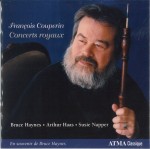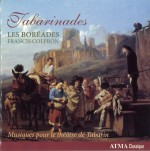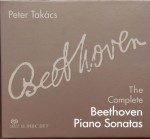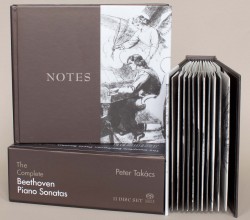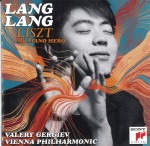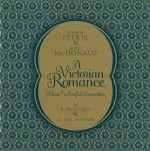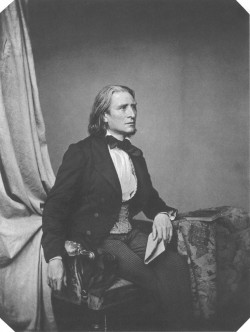 Two hundred years ago, on Oct 22, 1811 in the Hungarian village of Doborjan, later renamed Raiding in today’s Burgenland (Austria), one of the most influential figures in the history of Western music, Franz Liszt, was born. Although from Hungarian ancestry he never learned to speak the language as he spent most of his life in France, Germany and Italy. His father was a talented musician who worked for the Eszterhazy family and was well acquainted with Haydn. The little Liszt at age of seven already knew how to write music and played Bach fugues and transposed them while “his parents ate their dessert.” At the age of nine he gave his first concert and at the age of 10 he studied under Czerny and Salieri. His fame grew quickly and as a child prodigy his father took him on European tours.
Two hundred years ago, on Oct 22, 1811 in the Hungarian village of Doborjan, later renamed Raiding in today’s Burgenland (Austria), one of the most influential figures in the history of Western music, Franz Liszt, was born. Although from Hungarian ancestry he never learned to speak the language as he spent most of his life in France, Germany and Italy. His father was a talented musician who worked for the Eszterhazy family and was well acquainted with Haydn. The little Liszt at age of seven already knew how to write music and played Bach fugues and transposed them while “his parents ate their dessert.” At the age of nine he gave his first concert and at the age of 10 he studied under Czerny and Salieri. His fame grew quickly and as a child prodigy his father took him on European tours.
In the French capital he met Chopin and many other prominent figures of the music world. He quickly developed into a phenomenal pianist and was idolized throughout the salons. As a glamorous society beau he fell in love and ran away with a married woman, the beautiful Countess Marie d’Agoult, and had three children with her. (One of them, Cosima later married Richard Wagner.) But the love affair didn’t last. Later he met Princess Carolyne von Sayn-Wittgenstein, a divorcee whom he wanted to marry but the ceremony was cancelled in the last minute by order of Pope, Pius IX. Instead he lived with her in Weimar where as Kapellmeister for the Saxon princes he reshaped musical life and attracted all the upcoming composers to his “court.”
He became a “conqueror of Europe” and his fame and fortune knew no bounds. He was also a most generous man: he returned regularly to Pest-Buda (now Budapest) and gave many concerts for charity. He was also instrumental in the creation of Wagner’s Bayreuth Festspielhaus with a large contribution of funds.
This age bred many Romantic heroes like Lord Byron, Robbie Burns, Benvenuto Cellini, Niccolo Paganini, and Hector Berlioz whose colourful lives imitated their art. Liszt was one of these but he did not die young like the others and lived to a relatively healthy 75.
Being a pianiste extraordinaire he composed mainly for the piano. His output was prolific and many pieces such as the Hungarian Rhapsodies, the Paganini Etudes, Années de pèlerinage and the b-minor Sonata have become immortal masterpieces, staples of the repertoire and difficult hurdles for any aspiring pianist. He revolutionized the piano concerto by compressing the traditional three movement structure into a single, free flowing, long movement, but still maintaining, in the form of episodes, the usual introduction, allegro, andante, scherzo and presto finale sequences.
Later in life he concentrated on orchestral writing and invented a new form, the symphonic poem. He wrote 12 of these of which Les Preludes became the most often played but according to critics, some of the others like Héroïade Funèbre, Orpheus, Mazeppa and Hamlet are superior. Following the footsteps of Berlioz’ Symphonie fantastique Liszt further developed the romantic symphony with his Faust and Dante symphonies, which rival Berlioz.
Disappointed in being unable to marry his Princess, Liszt took on monastic orders and retired in a monastery near Rome. He became an Abbé and lived in a cell with minimal furnishings and an old out of tune piano with the middle D missing. Monastic life, however did not suit him. He continued to travel, visiting the Princess who lived in Rome. His journeys were mainly to Bayreuth, Budapest and of course, Rome. In his seventies his health began to fail and after catching a bad cold on one of his train journeys he died in Bayreuth in the midst of his daughter’s family in 1886 at the age of 75. Ironically, his much younger son-in-law Richard Wagner had died three years earlier in 1883.
All life must come to an end, but Liszt certainly made the most of it. A dashing romantic hero idolized by women everywhere he went, he was a magician of the piano who took pianism to a level never before imagined. As a composer he revolutionized and extended, along with Berlioz, the symphony orchestra with instrumentation and orchestral effects never heard before. His influence as a composer on his contemporaries and the next generation cannot be overestimated. Franz Liszt enriched the history of music and it is unlikely there will be another like him ever again.
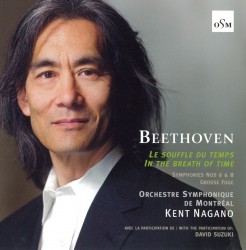 Beethoven - In the Breath of Time
Beethoven - In the Breath of Time

